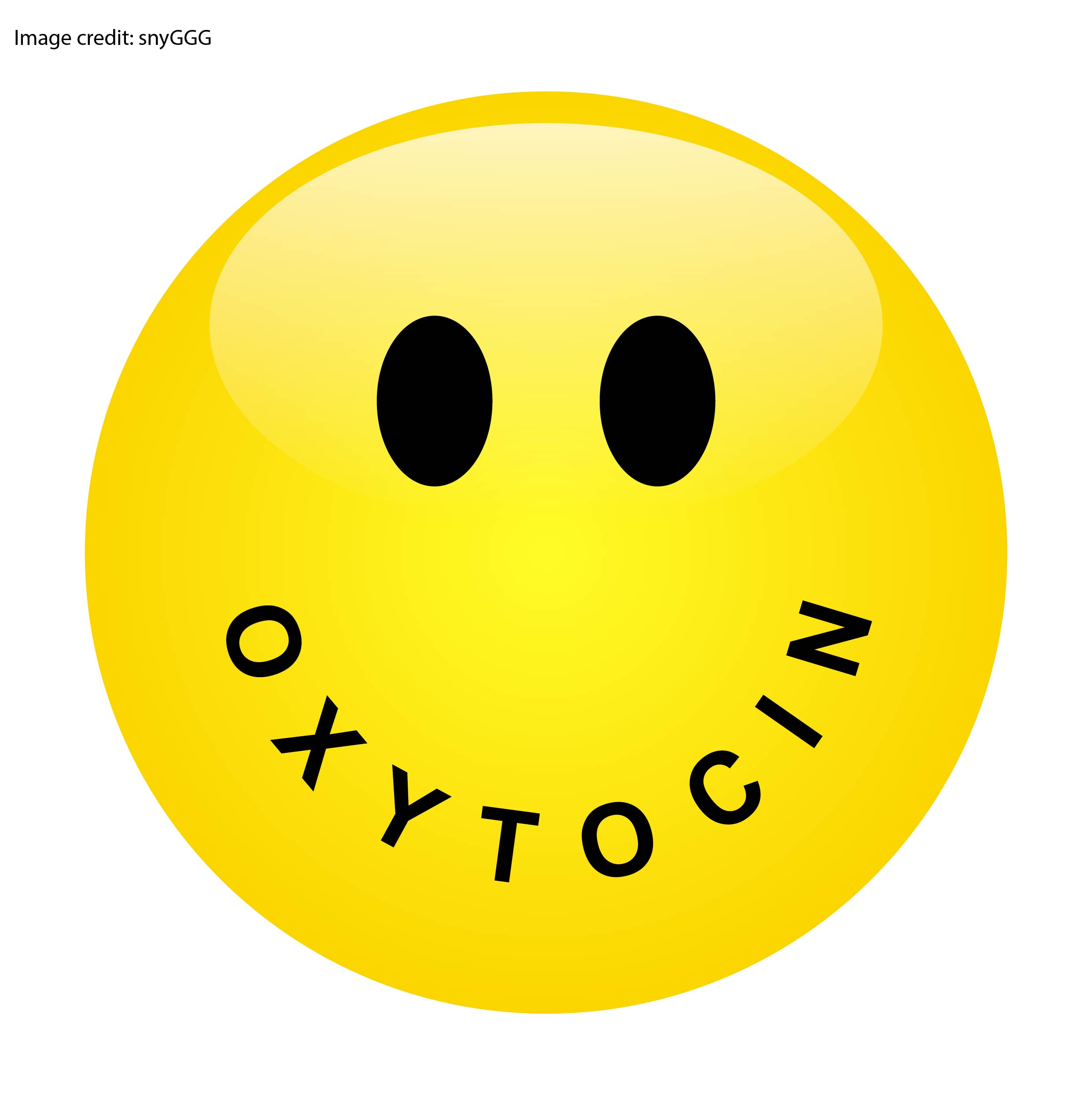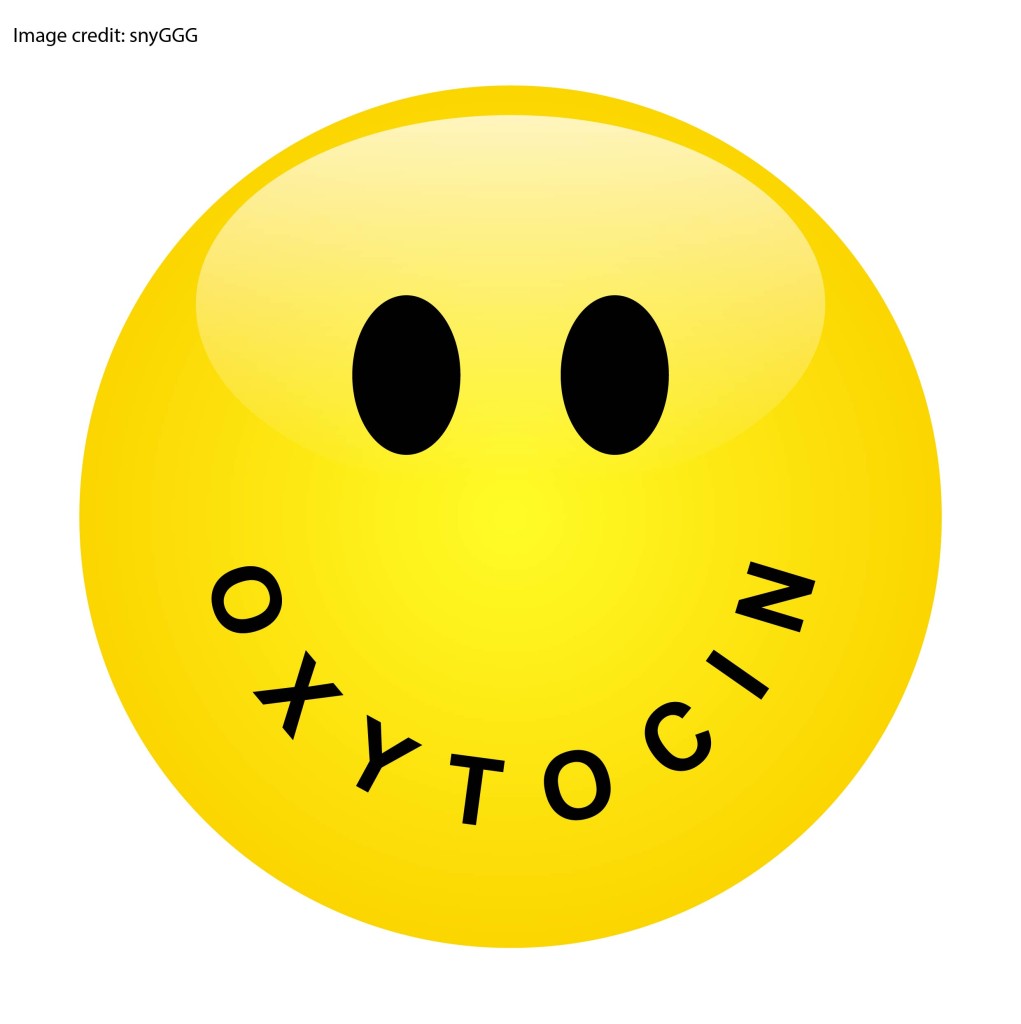
The hormone/neurotransmitter oxytocin has developed a great brand.
It gets credit for all sorts of good things. When new lovers meet, their giddy glow might result from oxytocin. When mothers hold their babies, oxytocin seems to widen their smiles.
Little wonder, then, that oxytocin has earned the nickname “the love hormone.”
An oxytocin downside?
Given all the hoopla, you might be surprised to learn that the effects of oxytocin aren’t always wonderful.
For example, as noted here in June, oxytocin levels seem to rise during times of relationship crisis, not just first-love blushes. It could be part of relationship stress as much as relationship bliss.
Today’s surprising news: oxytocin might also contribute to social anxiety. More precisely, blocking oxytocin production seems to reduce social anxiety.
These researchers suggest that oxytocin amplifies social effects in both directions. It helps good emotions feel great, and bad emotions feel terrible.
Why should teachers care?
When you start exploring the world of brain research, you’ll quickly discover all sorts of fascinating information.
- The hippocampus helps with long-term memory formation!
- Psychologists use water mazes to understand how rats learn!
- Both autonomy and connectedness boost motivation!
Given this embarrassment of brain richness, where should you look for guidance?
Here’s my advice: don’t obsesses over hormones and neurotransmitters. Why? Because, as you have seen, they’re just too complicated to provide meaningful classroom guidance.
For example: I occasionally hear speakers say that teachers should increase our students’ oxytocin levels. I think that advice means, “we want our students to feel good, not bad.”
However, as we have seen, oxytocin isn’t just the love hormone. It just might be an emotional distress hormone too.
So, don’t worry about the name of the hormone or the neurotransmitter. If the advice is, “make students feel good in the classroom,” focus on doing that. You don’t have to worry about the biological mechanism that’s creating the happiness.
—————————-
A final detail. In this post, I’ve called oxytocin both a “hormone” and a “neurotransmitter.” What gives?
Well, there are many proteins — cortisol is another — that act as neurotransmitters within the brain, and as hormones outside the brain.
That’s another oxytocin downside: it switches from one role to another depending on its location in the brain…





